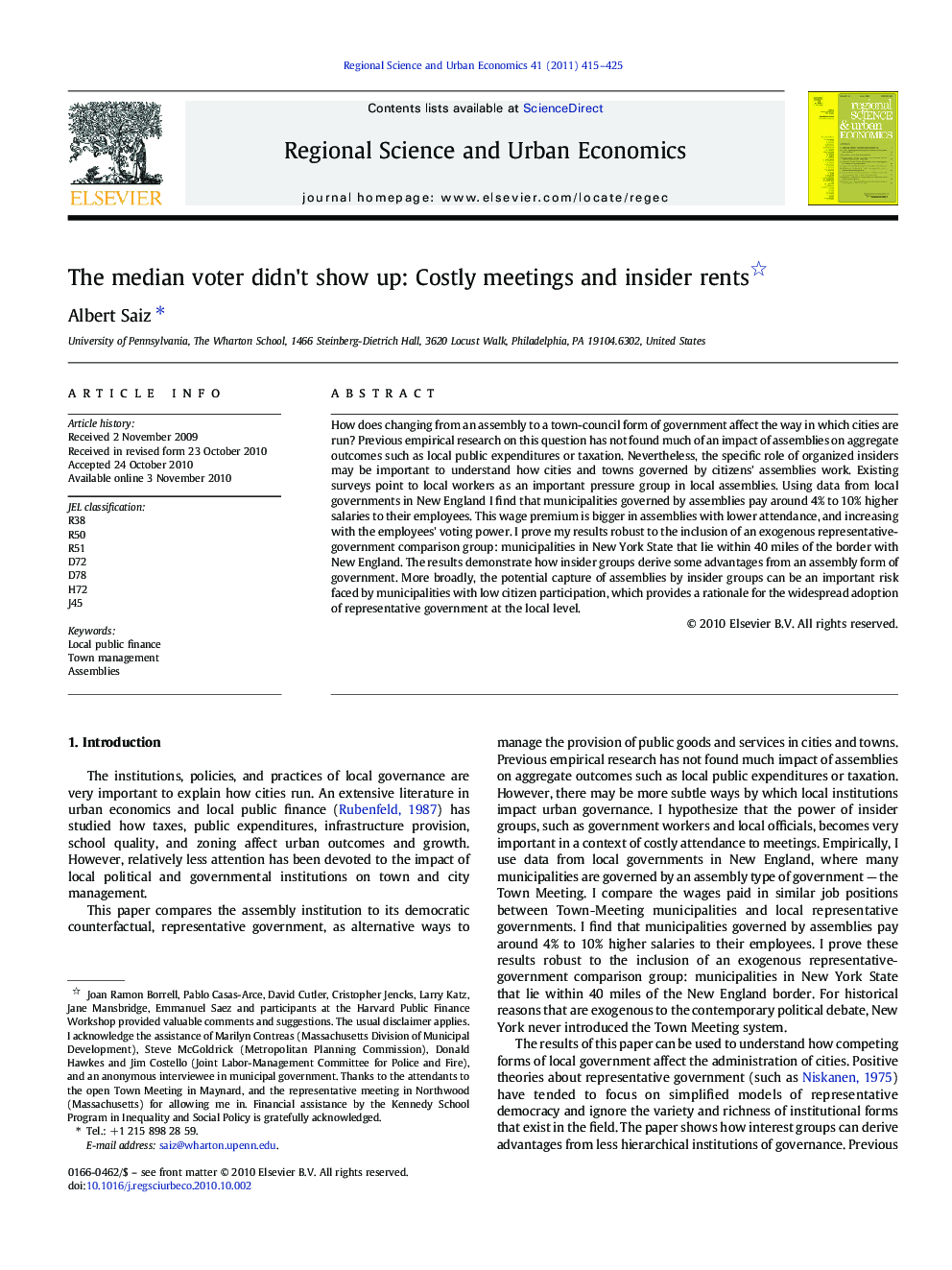| Article ID | Journal | Published Year | Pages | File Type |
|---|---|---|---|---|
| 981462 | Regional Science and Urban Economics | 2011 | 11 Pages |
How does changing from an assembly to a town-council form of government affect the way in which cities are run? Previous empirical research on this question has not found much of an impact of assemblies on aggregate outcomes such as local public expenditures or taxation. Nevertheless, the specific role of organized insiders may be important to understand how cities and towns governed by citizens' assemblies work. Existing surveys point to local workers as an important pressure group in local assemblies. Using data from local governments in New England I find that municipalities governed by assemblies pay around 4% to 10% higher salaries to their employees. This wage premium is bigger in assemblies with lower attendance, and increasing with the employees' voting power. I prove my results robust to the inclusion of an exogenous representative-government comparison group: municipalities in New York State that lie within 40 miles of the border with New England. The results demonstrate how insider groups derive some advantages from an assembly form of government. More broadly, the potential capture of assemblies by insider groups can be an important risk faced by municipalities with low citizen participation, which provides a rationale for the widespread adoption of representative government at the local level.
